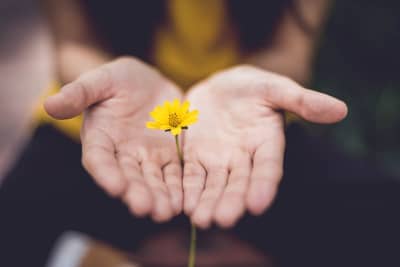"Oh, one of your weird friends, again!" said my daughter, dismissively.
She was speaking of someone I wished to invite to visit us over the summer. And her words made me think.
I suppose, by some standards, many of my friends are a bit weird. Some of them dress as Goths, even into their fifties. In fact, one of my Goth friends is an Anglican vicar - just to buck convention! Many of the men have long hair and often obscurely technical jobs. The women tend to be creative souls who have forgotten that fashion has moved on since the tie-die era of the seventies. A couple of my friends are autistic (albeit high-functioning). They are spiritual but not necessarily religious (even the vicar), intellectual but not always academic. Their ranks include an actor, an ex-Para, a Diocesan Spiritual Director and a professor of Chemical and Theoretical Physics.
Is that weird? My children seem to think so.
Equally, I have friends who are accountants and solicitors and successful businessmen and women. They wear professional clothes and lead conventional lives of work during the week, with gardening and sport at the weekend.
Is this more normal? And why?
If you look at my family from the outside, you would think that we are "normal". Certainly, my husband and second daughter feel, like Mr and Mrs Dursley, "Proud to be perfectly normal, thank you very much." They are more comfortable with people they feel are also "normal".
My elder daughter however, though not an outcast herself, has found friends in a set of congenial outcasts: her local Explorer Scout group. Apparently, it's deeply uncool to stay in the Scout movement beyond, well, Scouts. In this group are the geeks and the nerds; the people not quite sure of their sexuality, but assured of a safe place to be while they work it out; the people who don't quite fit into "normal" life. They are happy to accept being "Weirdos". At the same time, they rival Bear Grylls in woodcraft and survival techniques. They walk and kayak and build rafts and dens. It all sounds like the best fun to me – but at 55, I don't think I could keep up. And, does that makes me a weirdo too?
But – going back to friends – it is the first group of friends I go to when I need a deeper connection. Many of that first group have experienced depression. They are happy to talk about emotions, or just to sit in silence with me. They don't try to jolly me along or cheer me up; they understand. They are my tribe. I feel comfortable and totally accepted by them.
In the end, people are individuals. Each of us is unique and no-one is ever totally "normal". But it's an interesting exercise to look at your closest and most trusted friends and to see the connection between them.
(And – it's alright – I don't think you lot are weird at all!)
Mary
A Moodscope member.
Moodscope is crowdfunding. Please help. It only takes a couple of minutes to donate:https://bit.ly/2JcDkMm"
By making a donation you will enable Moodscope to make the improvements necessary to offer immediate help to everyone who needs it.



Comments
You need to be Logged In and a Moodscope Subscriber to Comment and Read Comments